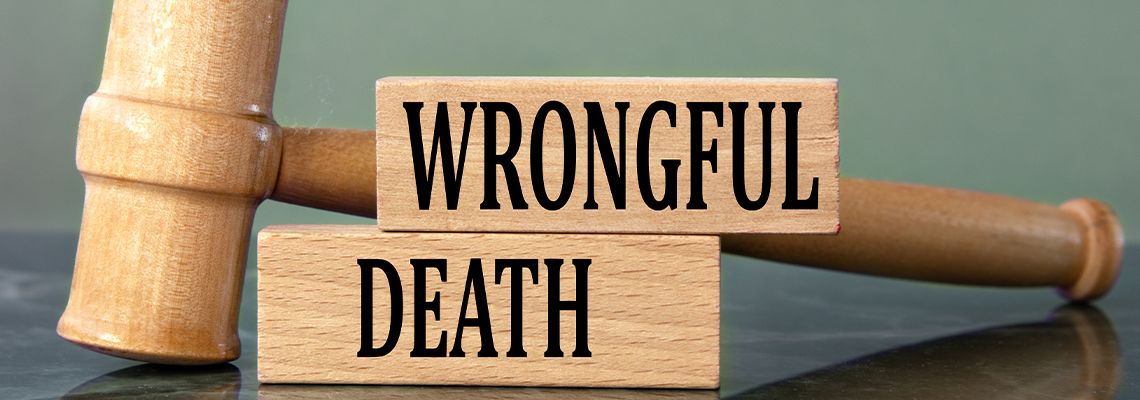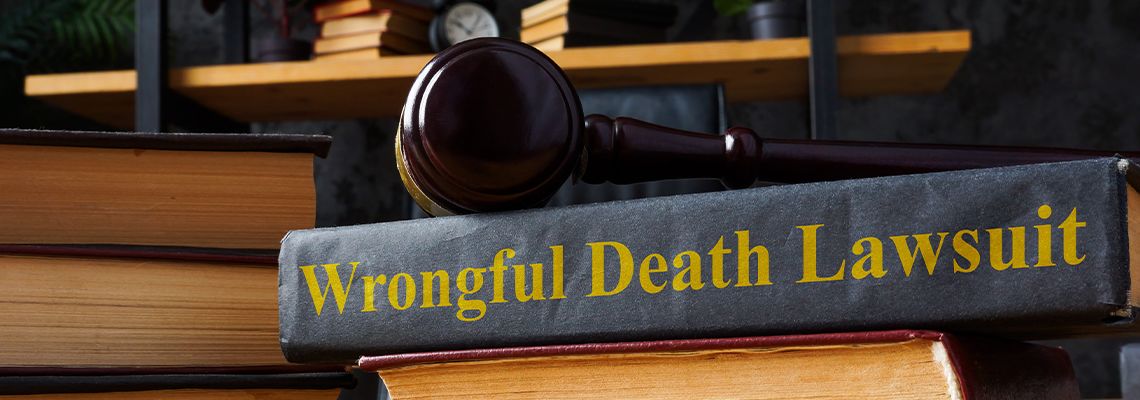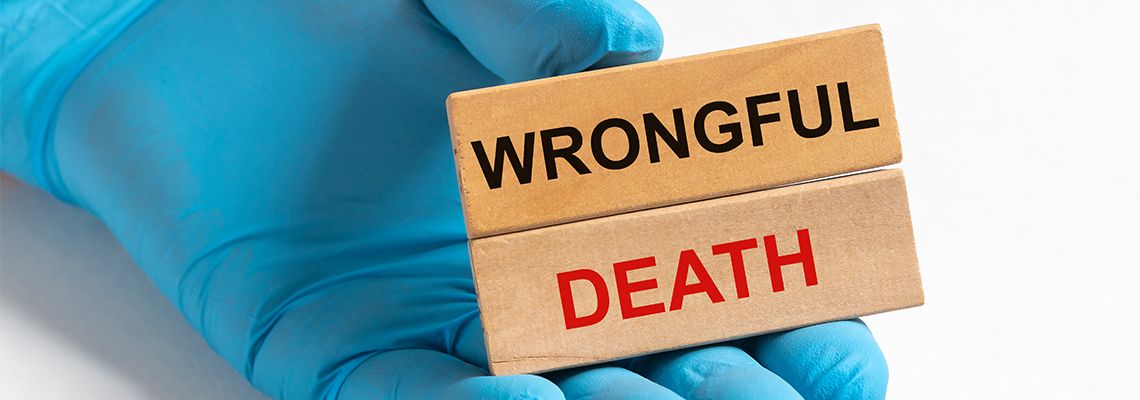The sudden loss of a loved one leaves families in Louisiana grieving and wondering how they’ll cover household bills. Wrongful death damages range from future paychecks to bedtime stories never told, and each element carries its own proof requirements within Louisiana’s civil code.

Who Files and What’s Recoverable in Wrongful Death Cases?
The untimely loss of a loved one is devastating, especially when it’s caused by someone else’s negligence. Understanding who can file a wrongful death claim and what damages can be recovered is essential for families managing this challenging time.
The Corrington Law Firm in New Orleans, Louisiana, provides compassionate legal guidance to families seeking justice and holding the responsible parties accountable.
The following explores key aspects of wrongful death claims, including who has the right to file, what compensation is available, and unique considerations for cases involving medical malpractice. Read on to learn more about your rights and options during this difficult period.
Who Can File a Wrongful Death Claim?
Wrongful death claims are typically filed by immediate family members or legal representatives of the deceased’s estate. In most states, spouses, children, and parents are considered eligible to pursue these claims. However, the laws governing eligibility can vary, so it’s crucial to understand your state’s specific requirements.
In some cases, siblings, grandparents, or other dependents may also be eligible to file a claim if they can prove a financial or emotional dependence on the deceased. Determining eligibility often involves reviewing the deceased’s legal and familial relationships, as well as any existing estate plans.
These claims are designed to provide surviving family members with the means to address their loss and rebuild their lives. Next, we’ll discuss the types of damages that may be recoverable in these claims.
What Damages Are Recoverable in a Wrongful Death Claim?
When pursuing a wrongful death claim, families can seek compensation for a range of damages. These damages aim to address both economic and non-economic losses associated with the death of a loved one.
Compensation may include:
Economic losses: Covering medical expenses incurred before death, funeral and burial costs, and loss of the deceased’s income.
Non-economic losses: Addressing emotional suffering, loss of companionship, and guidance provided by the deceased.
Punitive damages: In cases of egregious negligence or misconduct, additional compensation may be awarded to deter similar behavior in the future.
Each case is unique, and the exact damages recoverable will depend on the circumstances surrounding the death. These damages provide a foundation for the financial and emotional recovery of surviving family members. Understanding the damages available is only one part of the equation—next, we’ll explore who may be held responsible for a wrongful death.
Who Is Liable for a Wrongful Death?
Establishing liability in a wrongful death case is a complicated but critical step. Liability rests on proving that an individual or entity’s negligence directly led to the fatality. Depending on the case, liable parties might include a negligent driver, an employer maintaining unsafe working conditions, or a medical professional involved in malpractice.
In medical malpractice cases, liability often involves examining whether a healthcare provider failed to meet the standard of care. Similarly, product manufacturers may be held accountable for deaths caused by defective or unsafe products. Identifying the responsible party requires a thorough investigation into the events leading to the loss.
This investigation lays the groundwork for holding the liable party accountable and makes sure that the family has a strong case to present. When medical malpractice is involved, families should also be aware of the distinct challenges these cases present.
Unique Challenges in Medical Malpractice Wrongful Death Cases
Wrongful death claims involving medical malpractice present distinct challenges compared to other types of cases. These claims often rely heavily on expert testimony and detailed medical records to demonstrate that a healthcare provider’s breach of the standard of care caused the death.
Unlike other wrongful death cases, medical malpractice claims often involve disputes over complicated medical issues. For instance, it must be shown that the provider’s actions—or lack thereof—were directly responsible for the fatality, not preexisting conditions or unrelated factors.
Engaging medical experts is often essential to break down these intricate details and present them clearly to a judge or jury. Next, let’s explore how state laws can influence these cases.
How State Laws Impact Wrongful Death Claims
State laws play a significant role in determining how wrongful death claims proceed. These laws establish who can file a claim, the types of damages recoverable, and the time limits for initiating a lawsuit.
For example, statutes of limitations vary between states, meaning families must file their claims within a specific time frame. Additionally, some states place caps on certain types of damages, such as non-economic compensation for pain and suffering.
Understanding these legal nuances is vital for families seeking justice. By managing the specific laws in their jurisdiction, they can make sure that their claim adheres to all necessary requirements and avoids unnecessary complications. Timing is another crucial factor in building a strong wrongful death case.
The Importance of Timing in Wrongful Death Claims
Timing is a critical factor in any wrongful death case. Filing a claim promptly makes sure that evidence remains intact and witnesses’ accounts are accurate. Delays can result in lost evidence or expired legal deadlines, weakening the family’s ability to seek compensation.
In medical malpractice cases, timing is particularly important, as uncovering the cause of death often involves obtaining and analyzing extensive medical records. Families should act quickly to preserve their legal options and build a strong case.
Taking timely action also helps provide families with a sense of closure, as they work toward holding the responsible party accountable. Along with timing, the specific nature of medical malpractice cases adds another layer of intricacy.
How Wrongful Death Cases Differ in Medical Malpractice
Medical malpractice wrongful death cases often differ significantly from other types of claims due to the technical and medical evidence required. These cases demand a clear demonstration of how a breach in the standard of care caused the fatality.
Families must gather and present detailed medical records, expert opinions, and other evidence to establish a strong case. This often requires the support of professionals who can explain medical procedures and highlight deviations from accepted practices.
By focusing on the unique aspects of medical malpractice claims, families can pursue justice effectively and make sure that their case is well-prepared for court. To do this, it’s essential to understand the types of evidence that support a wrongful death claim.
Types of Evidence Used in Wrongful Death Claims
The success of a wrongful death claim relies heavily on the quality of evidence presented. Collecting and preserving evidence is crucial to proving negligence and calculating damages.
Evidence used in these cases may include:
Medical records: Documenting the care provided and any deviations from the standard of care.
Witness testimony: Providing firsthand accounts of the events leading to the death.
Financial documentation: Supporting claims for lost income and future financial support.
Expert reports: Offering professional analysis of negligence and its impact.
Organizing and presenting this evidence effectively is essential for building a compelling case. These efforts can also highlight the emotional and psychological toll a wrongful death takes on the surviving family.
Emotional and Psychological Impact of Wrongful Death
The emotional toll of losing a loved one can’t be understated, and wrongful death claims often aim to address this aspect. While financial compensation provides tangible support, it also acknowledges the deep emotional loss families endure.
Surviving family members often experience grief, anxiety, and a diminished quality of life. These non-economic damages can be challenging to quantify but remain a significant part of any claim. Courts may consider the loss of companionship, emotional suffering, and the broader impact of the death on the family.
Understanding these aspects can help families handle their claim with the emotional support they need during this difficult time. For those seeking legal guidance, it’s crucial to act quickly to make sure that their rights are preserved.
Reach Out Today
Losing a loved one due to someone else’s negligence is an unimaginable tragedy. Families facing such a loss deserve support as they work to rebuild their lives. The Corrington Law Firm provides experienced legal guidance to help families pursue justice and accountability. Contact the Corrington Law Firm in New Orleans, Louisiana, today to learn how they can assist you.
RECENT POSTS
Losing a loved one to someone else’s negligence leaves families grieving and facing new bills all at once. Because Louisiana’s civil code limits who may sue and which losses qualify, early legal guidance keeps cases focused on damages the court can actually award.



